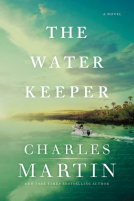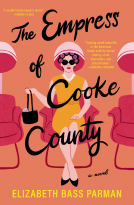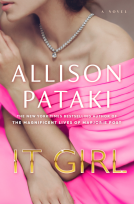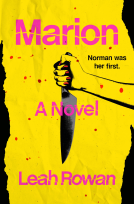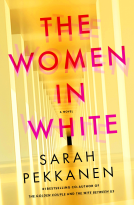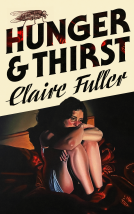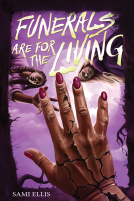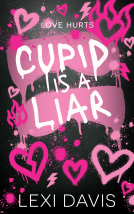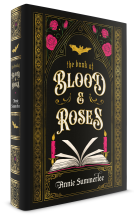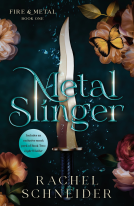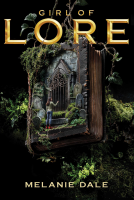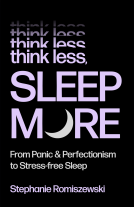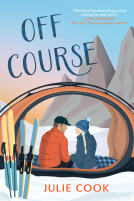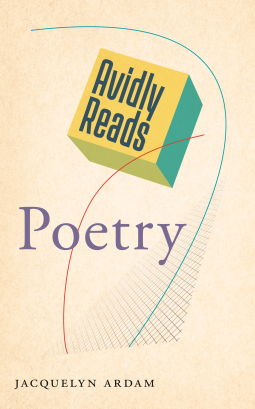
Avidly Reads Poetry
by Jacquelyn Ardam
This title was previously available on NetGalley and is now archived.
Send NetGalley books directly to your Kindle or Kindle app
1
To read on a Kindle or Kindle app, please add kindle@netgalley.com as an approved email address to receive files in your Amazon account. Click here for step-by-step instructions.
2
Also find your Kindle email address within your Amazon account, and enter it here.
Pub Date Apr 05 2022 | Archive Date Jul 12 2022
Talking about this book? Use #AvidlyReadsPoetry #NetGalley. More hashtag tips!
Description
“Poetry has leapt out of its world and into the world”
Poetry is everywhere. From Amanda Gorman performing “The Hill We Climb” before the nation at Joe Biden’s Presidential inauguration, to poems regularly going viral on Instagram and Twitter, more Americans are reading and interacting with poetry than ever before. Avidly Reads Poetry is an ode to poetry and the worlds that come into play around the different ways it is written and shared.
Mixing literary and cultural criticism with the author’s personal and often intimate relationship with poetry, Avidly Reads Poetry breathes life into poems of every genre—from alphabet poems and Shakespeare’s sonnets to Claudia Rankine’s Citizen and Rupi Kaur’s Instapoetry—and asks: How do poems come to us? How do they make us feel and think and act when they do? Who and what is poetry for? Who does poetry include and exclude, and what can we learn from it?
Each section links a reason why we might read poetry with a type of poem to help us think about how poems are embedded in our lives, in our loves, our educations, our politics, and our social media, sometimes in spite of, and sometimes very much because of, the nation we live in.
Part of the Avidly Reads series, this slim book gives us a new way of looking at American culture. With the singular blend of personal reflection and cultural criticism featured in the series, Avidly Reads Poetry shatters the wall between poetry and “the rest of us.”
Available Editions
| EDITION | Other Format |
| ISBN | 9781479813582 |
| PRICE | $17.00 (USD) |
| PAGES | 176 |
Average rating from 12 members
Featured Reviews
 Susan I, Reviewer
Susan I, Reviewer
Another great entry in this series of brief books focusing on a knowledgeable author’s personal essays on a topic. In this one, Jacquelyn Ardam, who formerly taught classes on poetry, argues that poetry is now mainstream, thanks to social media. While her chapter on internet poetry certainly supports her claim, I unfortunately do not think as many people are reading poetry as should.
Regardless, this is an enjoyable easy read that will encourage you to seek out new poets, and excuse your secret dislike of enormously popular poets (ahem). It will also make you laugh out loud.
Trump supporters will not appreciate some comments in the book, but I can’t imagine many would read a book on poetry anyway. I wish I could have taken one of Ardam’s classes when she taught in Maine. #AvidlyReadsPoetry #NetGalley
 Mary H, Educator
Mary H, Educator
Avidly Reads Poetry has four chapters: the sonnet, the alphabet poem, the documentary poem, and the internet poem. Although I was expecting a chapter about sonnets, I was surprised by the focus on the abecedarian. By sharing her in-depth knowledge, readers will undoubtedly gain new insight into this form that children often first encounter in alphabet books. As an educator, I appreciated the chapter on the documentary poem the most because the author talked about her experiences teaching a university class titled "Poetry as Resistance: Remixing the Archive" which included works such as "Zong!" by M. NourbeSe Philip and "38" by Long Soldier. As such, this book showcases Ardam's personal and professional experiences with poems--it is a book that only she could write, but one that many readers can enjoy.
 Account D, Reviewer
Account D, Reviewer
Thank you, NetGalley for the chance to read and review this book!
I’m not familiar with any of the other books in the avidly reads series, but I would check them out on the basis of this one. Ardam is a good writer, clearly very knowledgable, and as a Professor is able to recognize when to stop and not overload someone with information. I’m adding a lot of things to be tbr stack because of this book, such as the book of the dead,
I will say though that I really disagree with Ardam’s opinion on certain poems, such as Wild Geese by Mary Oliver and Good Bones by Maggie Smith! Those are two that I really love! But I also like that Ardam was okay with going there and putting her opinion out there and talking about it. I respect her opinion on them, even if I don’t agree. I wouldn't mind either taking her poetry class or at least going over her syllabus and taking things out of it to read.
An intuitive, very personal work that emphasises how poetry can be accessible, relevant and enjoyable to the layman and (high school) student. How barriers and stigmas that so often surround the validity and legitimacy of poetry can be broken down.
Poetry’s influences are all around, in culture, politics, etc., and this work should encourage teens/young adults in particular to find their voice.
“Poetry has leapt out of its world and into <i>the</i> world”
A very inspiring read. I would love to sit in on a lecture or meet the author in person!
My thanks to NetGalley and NYU Press for granting this e-ARC in exchange for an honest review.
I'm an odd reader for this book, as like Ardam, I'm a 19th-century literature scholar who, due to a variety of blocks (including the nonexistent job market) will probably not get to make a career out of 19th-century literature scholarship. So, I suspect parts of the book hit closer to home for me than for other readers. I enjoyed the volume, which feels like an enjoyable string of early-week lectures in a Poetry 101 class--in a good way! Like other reviewers, I did feel the absence of queer theory (particularly in the Internet Poem chapter) and wanted a more robust discussion/theorization of circulation. Put in the right hands, this book can serve as a delicious gateway to poetry for many readers--that possibility certainly earns it a spot on my shelf!
 Naomi T, Reviewer
Naomi T, Reviewer
More of a 3.5 than a 3, but not quite a 4 for me.
What Worked for Me
This book got me thinking more about poetry, how it's used, the stories it can tell, the types of audiences it can (or sometimes cannot) reach. I liked how it was divided into four sections that focused not only on a type of poem, but on the author's personal life. I thought she mixed poetic analysis and memoir together in a way that was cohesive, both parts working together toward a clear goal. The chapter on abecedarian poems was fascinating. I had read Edward Gorey and thought passively about audience & intended demographic, but never looked further than that. I also really enjoyed the chapter on documentary poems, as I didn't know much about such poems. This essay collection introduced me to many poets & concepts that I will be researching further in the future.
What Didn't Work for Me
Ardam uses a lot more swearing, which I wasn't expecting. I'm not against using swear words in general, as long as it fits & has a clear purpose. This was not the case, in this instance. From the description I was expecting something a lot more academic. Maybe if the book had a brief introduction to the series this is a part of that might have helped? (I haven't looked up the rest of the series, so I'm not sure if this would help or not.) I was a little unclear on the intended audience. The mix between memoir and analysis worked, but the mix between personal and academic didn't, which I know seems contradictory, but analysis can be personal or can be academic. It rarely works as both, in my experience. Ardam also can come across as vituperative in her political comments, which, while understandable, isn't my cup of tea, as it were.
While there were many things I appreciated about the chapter on internet poems, this was the weakest essay. It was messy, not always coherent, and not always fair. The Mary Oliver poem takes a beating, which I found odd, because the entire poem was filled with queer vibes all over the place, and upon a quick google search it turns out Mary Oliver was a lesbian poet. Ardam tries to be more aware of her bias as a straight cis-gendered woman, but gods, she wildly missed the queer wording of this entire poem. I read it and almost immediately cried, I related to the queer subtext So Much. I understand her critique of rupi kaur, but I do not understand her critique of Mary Oliver as banal. As she might say: WTF is wrong with you? If you are going to have an essay collection that includes references and analysis of queer authors & people of color, I would have expected a sensitivity reader to be involved, and I'm not convinced that happened. As a white person, I'm not wondering if there are racist things in this text that I missed.
What I Think Overall
If you are looking for a personal, part-memoir, part-analysis look at poetry and how audience can affect the reading & creation of poetry, I recommend this book. It's short, there are good questions, it would be great, I think, as a book club book to start dialogue around some difficult issues. I think it does a good job of making an argument for poetry's validity as an artistic form. If you are looking for more than that, this may not be the book for you.
Readers who liked this book also liked:
Lexi Davis
New Adult, Novellas & Short Stories, Romance
